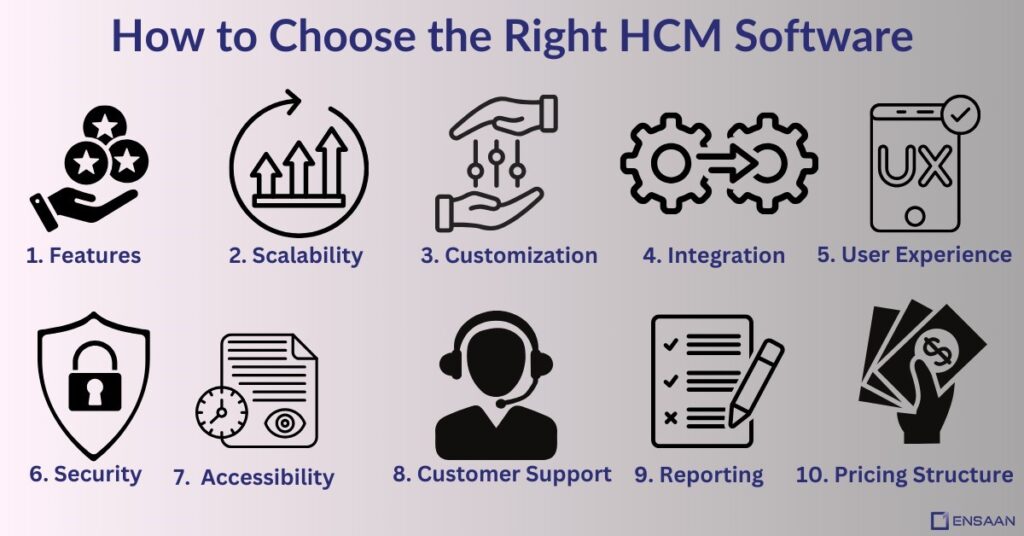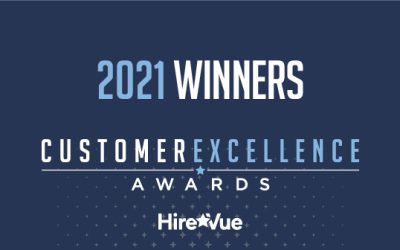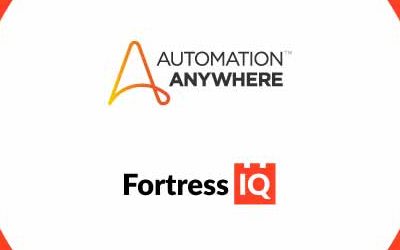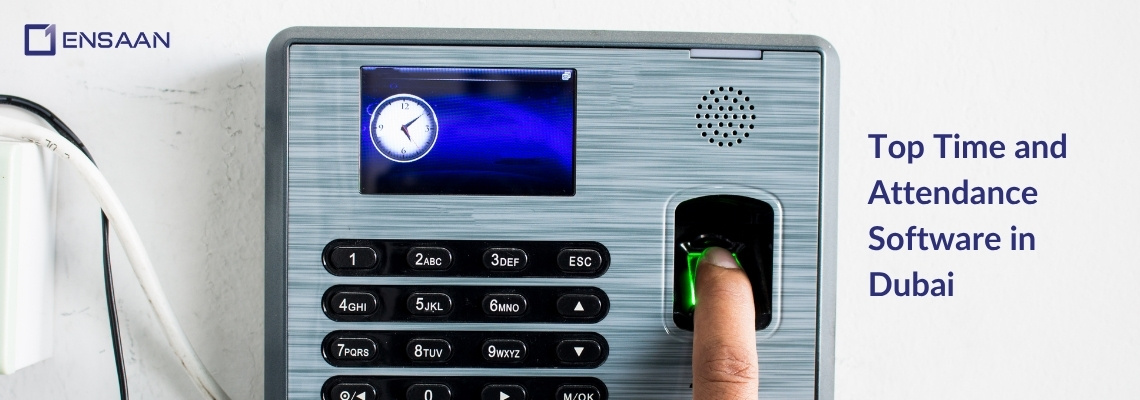The field of HR covers a lot.
As an HR professional, you are responsible for each part of the employee lifecycle in your company, like hiring, induction, payroll, attendance, performance reviews, training, and finally retirement.
By performing all this manually, it frustrates you and your employees and slows down important work.
The organizations now use the human resources technology tools to delegate the mundane and repetitive activities of people management.
Such technology tools include Human Capital Management or simply known as HCM software.
This article describes what exactly an HCM system is and how it can benefit your organization.
Explore the top Human Capital Management (HCM) Softwares to grow your business in 2025
Table of contents
What is HCM Software?
Human Capital Management Software, better known as HCM software, is a holistic digital solution for HR that enables any organization to automate HR operations and manage their employees effectively.
With the HCM platform, you can get rid of the manual administrative work which consumes most of your time and turn that focus on strategic initiatives that help your organization stay competitive.
Basically, from recruitment to onboarding, core HR operations, training, talent management, reporting, and all other HR analytics, everything about an employee can be tracked and followed online through a centralized HCM system.
That way, you and your employees will not have to operate ten different HR systems which do not communicate with one another.
What Can HCM Software Do? (Key Features)
HCM (Human Capital Management) software helps organizations manage and optimize their workforce efficiently.
It covers a wide range of HR tasks, including:
Automating the recruitment process by tracking applications and making onboarding easy for the employees.
Automating salary calculation, tax deductions, and managing employee benefits.
- Employee Records Management:
Employee information is well kept in a safe place for easy access.
Tracking goals, performance reviews, and career development.
Provides training programs and maintains records of employee performance.
Provides work hours, leaves, and schedules.
- Compliance Management:
This includes adhering to labor laws and regulations within the organization.
Offers insights into trends in the workforce that help in decision-making.
By integrating these features, HCM software saves time and reduces errors while improving employee satisfaction.
Therefore, it’s an indispensable tool for any organization.
Why Do Businesses Need HCM Software?

Whether you’re a small startup or a corporate giant, HCM Software can make a world of difference. Here’s how:
1. Provides a Better Employee Experience:
HCM software can easily be the most important player to improve employee experience, given that it smooths out nearly every touch point between you and your employees throughout their lifetime at your organization.
Because HCM works on the cloud, the latter will enable employees to do paperwork and compliance evaluations, give and receive feedback, follow their goals and career growth, learn, and collaborate with their colleagues-all on one system, even if they are working remotely from another part of the world.
2. Streamlined HR Processes:
How you manage core HR activities, such as onboarding, attendance, time off, and compensation, will create a huge difference in your workforce.
Appreciative of the HCM platform, managing core HR operations becomes easier since most of the tasks get automated.
For example, if employee requests time off through the HCM system, managers can immediately approve or reject the application.
That includes automatic appearances in the leave report used for payroll calculation if approved.
What that has done is eliminate almost all of the manual work that you and your team have to do about time off.
The automation workflows yield similar benefits for the other areas.
3. Manages Employee Data Better:
HR data is sensitive. It contains most personal information about an employee, including salaries, benefits, personal identification, and even banking details.
A good HCM software system should store and organize this information in a secure place. It must be accessible anywhere, provided one can access it.
This allows freedom when data is shared or exported but keeps all of it safe. Because that data is available on-demand, compliance is easier to maintain, and audits are easier.
4. Offers Great Insights about your Workforce:
HCM software can collect employee data and generate valuable insights into your people management techniques.
The reports and dashboards you can access with the HCM system will help you know where some problems persevere in your employees and help you make more informed decisions on resolving the issues.
For example, the HCM platform can analyze the performance data of your organization’s best performers and indicate what skill sets and qualities are common in them that make them thrive in your organization. These could then be used to help your new employees perform better.
5. Supports Employee Development:
Supporting employee development could be offering possibilities for employees to develop their skills and careers through training programs, mentorship programs, career guidance, and facilitated access to learning resources.
This can include support to take on new challenges, giving feedback, sponsoring certifications, and courses.
Companies create a culture towards learning and innovation that helps employees’ confidence, pleasure, and success in doing their jobs.
Who is HCM Software For?
1. Small Businesses:
Think HCM is only for big players? Think again. Small businesses use HCM tools to scale operations without hiring a full-blown HR team.
2. Large Enterprises:
For large organizations, HCM Software ensures seamless coordination across several departments and locations.
It saves your life when it comes to managing complexity.
How to Choose the Right HCM Software ?

Choosing the right Human Capital Management (HCM) software is important for effectively managing HR functions and providing employee experiences.
Here are key considerations to guide your selection process:
1. Features and Functionality:
Analyse the specific features being offered by the software, such as recruitment, onboarding, payroll processing, performance management, and employee self-service.
Verify that the software fits your unique HR needs and improves operational efficiency.
2. Scalability:
Select HCM software that will grow with your organization, absorb an increasing number of personnel, and support changing business requirements without adding significant additional cost and complexity.
3. Customization:
Find the software that provides the facility for workflow, report, and user interface customization as per the process of your organization.
This kind of flexibility is quite helpful in responding to specific operational needs.
4. Integration Capabilities:
Third-party systems include payroll, accounting software, and other HR systems that must work in concert with the HCM solution.
Poor integration will lead to a lack of standardization in information and organizational processes.
5. User Experience:
The selected software shall be user-friendly in design as all employees will be entitled to the software.
A user-friendly design ensures it is well adopted and reduces time used in training.
6. Security Measures:
Give HCM solutions that boast impressive security features, like data encryption, user authentication, and compliance to standards such as ISO 27001.
This will ensure sensitive employee information is safe.
7. Mobile Accessibility:
With more employees working remotely, mobile access has become a necessity.
It is important that the software offers mobile responsiveness or an app where employees can manage their information while on the move.
8. Support and Training:
Assess the degree of support from the vendor regarding training resources, customer service accessibility, and ongoing maintenance support.
Having reliable support can make quite a big difference in your user experience.
9. Reporting and Analytics:
With robust reporting, create custom reports on key HR metrics in real time.
With strong analytics capabilities, it will, in turn, help drive the process of data-based decisions.
10. Pricing Structure:
Understand the pricing model that the HCM software deploys, including additional hidden costs for implementation or ongoing support.
Consider whether it offers a subscription model or a one-time license fee, and make sure it aligns with your budgetary constraints.
How to Implement HCM Software Like a Pro ?
Implementation isn’t just about hitting the “install” button. Follow these steps for success:
- Define Your Goals: Know what you want to achieve with the software.
- Choose the Right Vendor: Research, compare, and select wisely.
- Train Your Team: A little training goes a long way.
- Monitor and Optimize: Post-implementation, keep an eye on performance and tweak as needed.
What Does the Future Hold for HCM Software?
AI and Automation Are the Future:
The future is here, and it’s all about AI. From personal employee experiences to predictive analytics, AI is making HCM Software smarter and more efficient.
Trends to Watch
Look out for improved mobile apps, better user interfaces, and even more data-driven insights.
Conclusion
With the Right HCM system in place, nothing will prevent you from optimizing employee management at your organization.
Using HCM software can make your employees feel more engaged, productive, empowered, and satisfied.
This helps ensure that every interaction between you and your employees is useful, worthwhile, and stress-free.
In a long-term basis, it leads to a better trusting relationship between your workforce and your HR team.
FAQs
By automating processes, giving insights based on data analysis, and increasing employee satisfaction.
Of course! Many of them have scalable, cost-effective solutions designed for smaller teams.
Migration of data and acceptance by the users may get a bit tricky, but it will be smooth provided one plans and trains properly.
Yes, most of them claim to have seamless integration with tools such as CRM and accounting software.
Yes, with very high-quality security features including encryption and compliance policies that guarantee the protection of your data.

















